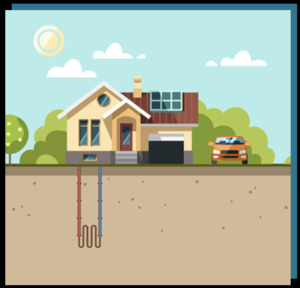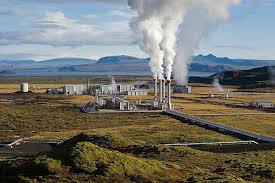As part of the fight against climate change, scientists and many governments are calling for a serious reduction in worldwide carbon emissions. The goal is to go net zero through geothermal heating, solar, wind and other forms of alternative energy. We can reduce emissions while undertaking activities (like planting trees and using solar power) that can offset the carbon emissions that cannot currently be stopped or reduced even further. This concept is referred to as being “Net Zero”–the carbon emissions that impact our climate are completely offset by a combination of emission reduction and replacing carbon-emitting sources such as fossil fuels with clean, renewable sources.
The Canadian government, along with over 120 other countries has committed to a Net Zero economy by the year 2050. The first part of this plan involves reducing carbon emissions by 40-45% by 2030. Nationally, this program focuses on large carbon emitters such as manufacturing. But this goal cannot be achieved without efforts to achieve Net Zero status in homes and small businesses.
Is a Geothermal system right for your home?
Achieving Net Zero at home
There are a variety of ways an existing home can improve its carbon footprint. Additional insulation, monitoring water usage, and installing more energy-efficient appliances all add up. But in reality, 40 percent of a home’s carbon emissions come from its heating and cooling system. To make the largest single change to a home’s carbon footprint, and the best way to reach something approaching Net Zero, homeowners should consider replacing older, less efficient HVAC systems. The replacement options vary and can include heating and cooling systems based on geo-exchange.
Geoexchange systems use geothermal energy
Traditional HVAC systems burned fuel oil for heating, and electricity to cool. Using natural gas is a slightly more efficient and less “dirty” source of heat, but these systems still rely entirely on electricity for cooling. Geothermal systems, either Air Source or Ground Source do not use any gas or fuel oil and can use less electricity than other HVAC systems. Depending on the Geothermal type in use and seasonal climate where installed, these systems can lead to significantly lower operating costs as well.
Storing and retrieving energy from the earth
Geoexchange heating and cooling, utilizing a Ground Source system, transfers heat into the ground from a home or business in the summer, and pulls that energy back into the building in the winter to reduce heating costs. Ground source systems use piping buried underground, or in a nearby pond or lake to make the exchange. This process does not require fuel oil or natural gas, and depending on conditions uses less electricity than traditional systems. This is where this type of system can dramatically reduce that 40% of carbon emissions, bringing the home or business much closer to Net Zero status.
Whether to use a Ground Source or Air Source Heat Pump may depend on where the system is to be installed. A Ground Source system, with its buried piping, may not be suitable for some areas but can be installed straight down, reducing the amount of real estate necessary. An Air Source Heat Pump uses the air around the installation to exchange heating energy and may be less effective depending on the local climate.
We can help you get closer to obtaining Net Zero status and apply for incentive programs too. Envirotech Geothermal proudly serves the Lakeland, Calgary, and Edmonton, Alberta regions including Canmore and Rockyview helping homeowners and builders to discover the benefits and features of geothermal heating and cooling. Contact us today to learn how you can save up to 70% on your heating and cooling bills by utilizing geothermal heating and cooling in your home. Call us at 780.220.0842 or request a Geothermal Consultation for more information.




